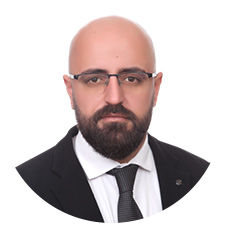Introduction
Rights of Refugees and Asylum Seekers
Right to Non-Refoulement:
- One of the core principles of international refugee law is non-refoulement, which prohibits the return of refugees to a country where their life or freedom would be at risk. Turkey upholds this principle, ensuring that refugees and asylum seekers are not forcibly returned to unsafe territories.
Access to Healthcare and Education:
- Refugees and asylum seekers in Turkey have the right to access healthcare services. Those under temporary protection are entitled to free healthcare at public hospitals. Children of refugees and asylum seekers also have the right to attend public schools.
Work Permits:
- After six months of receiving temporary protection status, refugees and asylum seekers can apply for a work permit. This allows them to legally work in various sectors, though there are restrictions in certain industries.
Social Support:
- Turkey provides limited social assistance to refugees and asylum seekers, including financial aid through programs such as the Emergency Social Safety Net (ESSN). NGOs also play a significant role in providing additional support for housing, food, and basic needs.
Challenges and Obstacles
Lengthy Application Processing Times:
- The asylum application process can be lengthy, leaving applicants in legal limbo for extended periods. This uncertainty can affect access to work, housing, and other basic services.
Language Barriers:
- Many refugees and asylum seekers face language barriers when accessing services and navigating the legal system. While translation services are available, they are often limited.
Integration Issues:
- Social integration remains a challenge for many refugees, particularly in areas like employment and education. Despite having legal rights, refugees often face discrimination or difficulties finding stable jobs or housing.
Recent Developments (2024)
Improved Digital Systems:
- In 2024, Turkey introduced new digital systems to streamline the asylum application process, reducing wait times and improving transparency. This system allows applicants to track their case status online.
Expanded NGO Support:
- New partnerships between the Turkish government and international organizations have increased support for refugees, particularly in healthcare and education. NGOs now have more resources to assist vulnerable populations.
Conclusion
Turkey provides extensive legal protections for refugees and asylum seekers, granting access to healthcare, education, and work opportunities. While the process of seeking asylum can be lengthy and challenging, recent developments have improved the efficiency and accessibility of the system. Understanding the legal processes and available support is crucial for refugees navigating life in Turkey.


